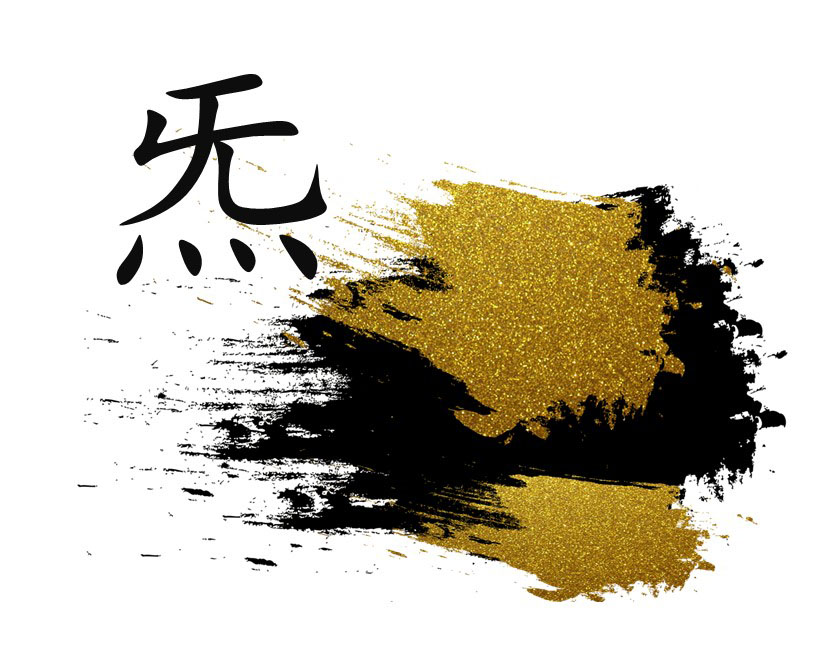
Shown above is the Chinese character Qi. This character is unique for ancient Taoism and no longer used in modern culture. In fact, a lot of Chinese educated only through modern education do not understand this character.
Common English translation for qi is breath or air, which is the translation of 气,another character similar to this one. Energy is a more fitting translation. However, this character refers to a very unique kind of energy, the primordial energy before there is a separation between Yin and Yang, light and dark, feminine and masculine. It is the source out of which duality arises.
As a fetus or an infant, we are naturally immersed in primordial qi. And, we are not aware of it. The development of self-hood broke our connection with the primordial qi. This self can be trapped by the duality, believing that we are one of the poles that the mind creates, be it as gender, or social identity or political opinions. Going through duality is important for soul’s developmental journey. However, being trapped by duality blocks us from a larger truth, and the constant grinding and tension between polarities can deplete our vitality.
This character reminds us of the part of us that is beyond duality. It is what gives rise to duality, and also what “recycles” duality when duality turns into a rigid pattern and starts to block the flow of life. Having access to qi through qigong allows us to go in and out of duality, to fulfill the purpose of being a better servant, a faithful steward to life inside the duality. Chinese medicine and acupuncture is an example of how people apply the knowledge and access to qi, the primordial energy in service of life. This possibly sets the Taoist practice apart from the common interpretations of Eastern spiritual traditions, which emphasizes more on transcending the duality.
The upper section of this character bears similarity to the character 无, Wu, which means nothingness. It also bears the same origin with 元,yuan, which means origin or primordial. The bottom, the four dots, refers to “the quality”. Together, this means the quality of nothingness is primordial energy, which is the source out of which duality emerges.
In ancient Tao, Wu, or nothing-ness, is the mother source of everything. In modern culture, our society conditions us to be someone, or something, which is a great experience for its own right. However, this character often reminds me that it is also a blessing and privilege when I CHOOSE to be a nobody and nothing.
When we practice qigong, we are cultivating the quality within that’s beyond duality. In Tao Te Ching, Lao Tzu said that the goal of the practice is to return to the state of being as a baby, when one is in full and intimate contact with the primordial qi.
In our practice, we constantly weave our awareness between polarities of up and down, slow and fast, soft and hard, leading and following. Through these weaving, the pathways for this primordial qi become open. We develop this vivid sense that we are a cell within a much larger life.

I am loving reading this.
There are so many correlations with the Vedic map of existence and life.
Thank you.
my wife kiki and I would love to get in touch with you.